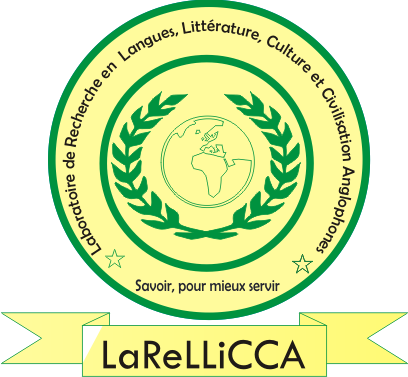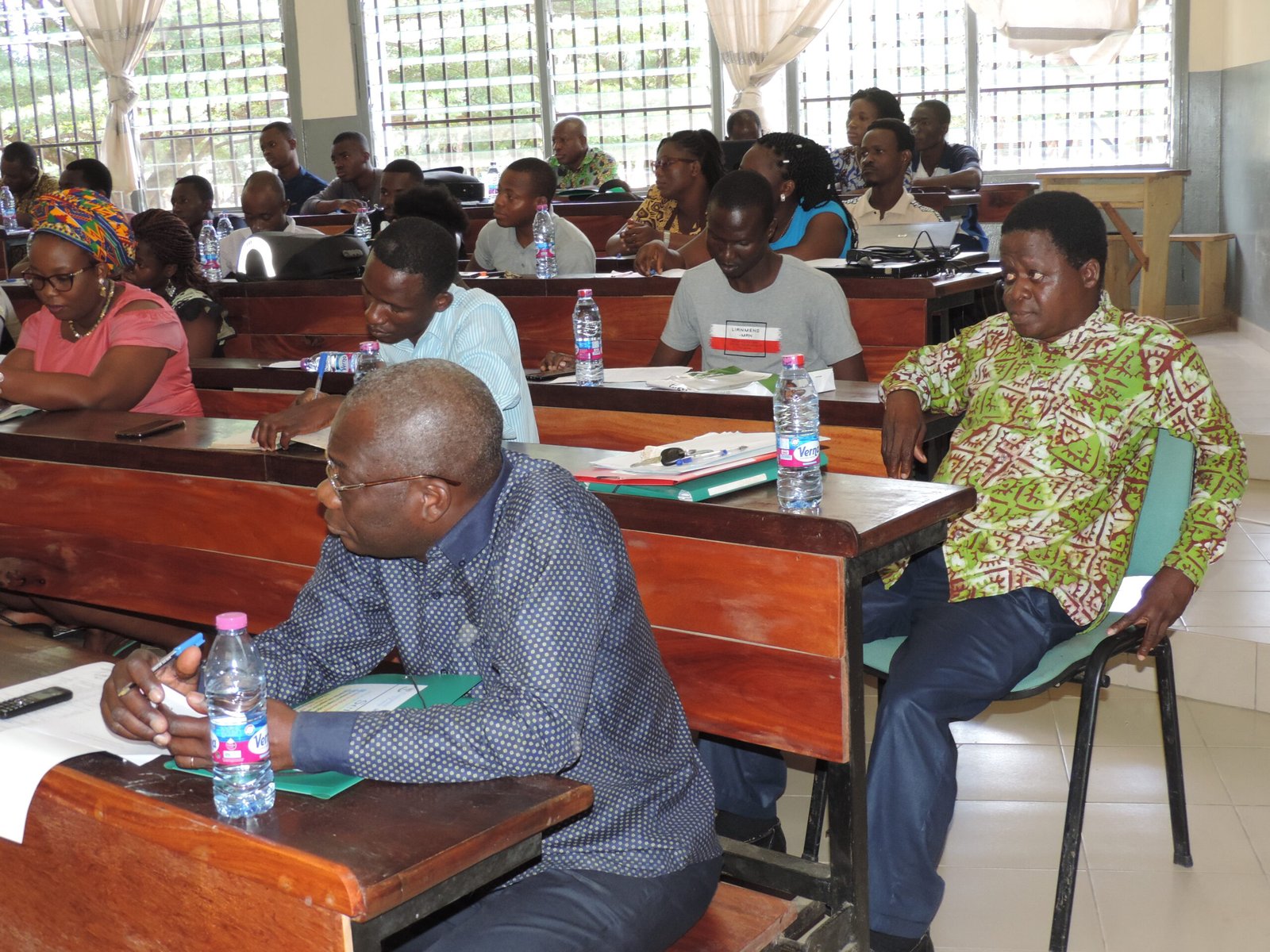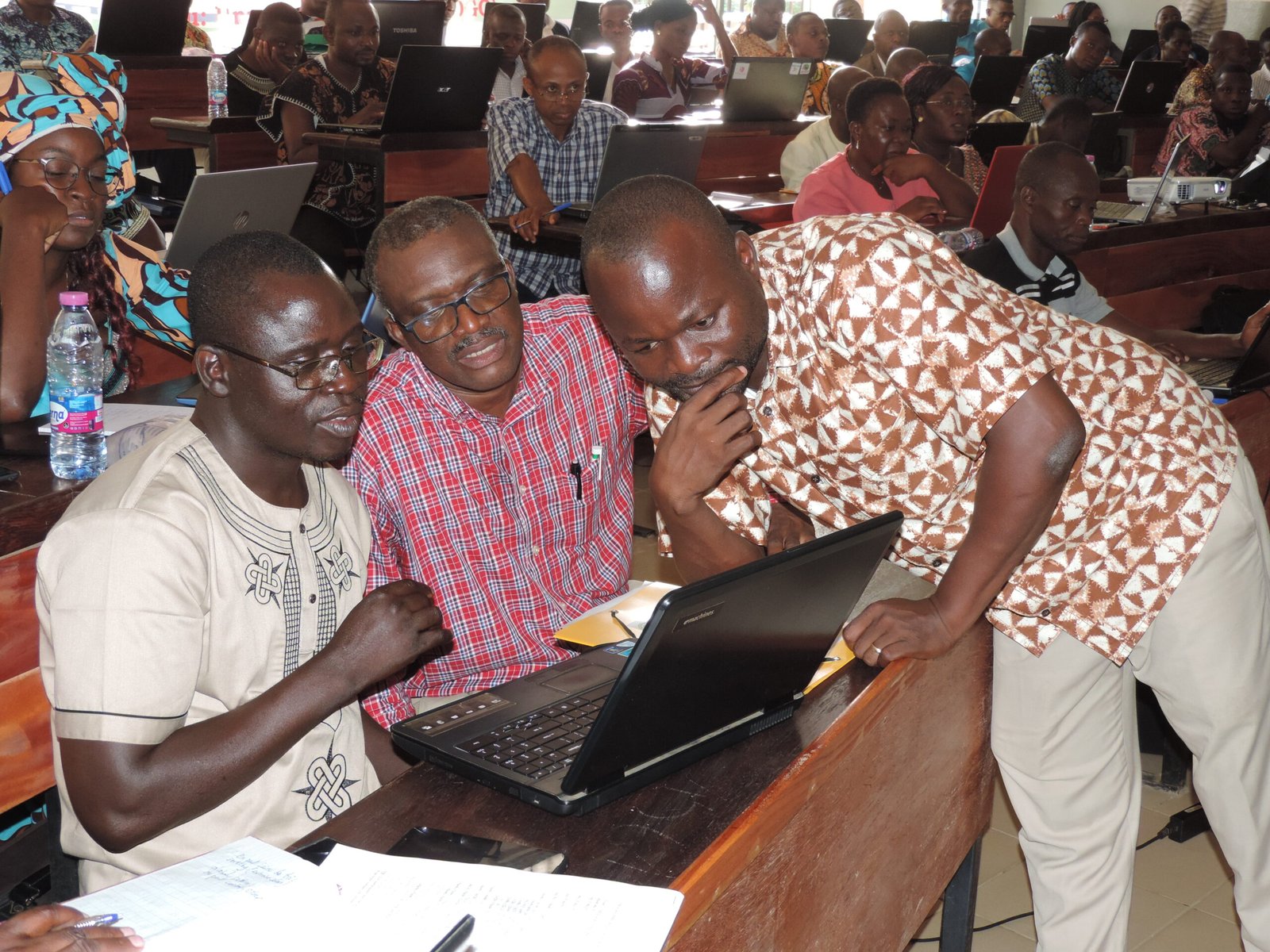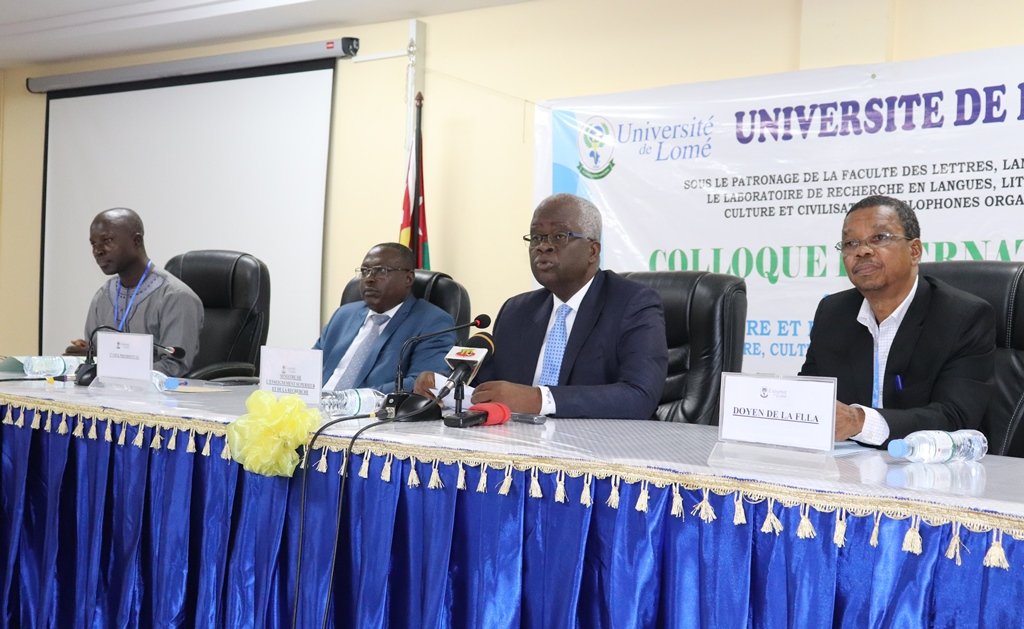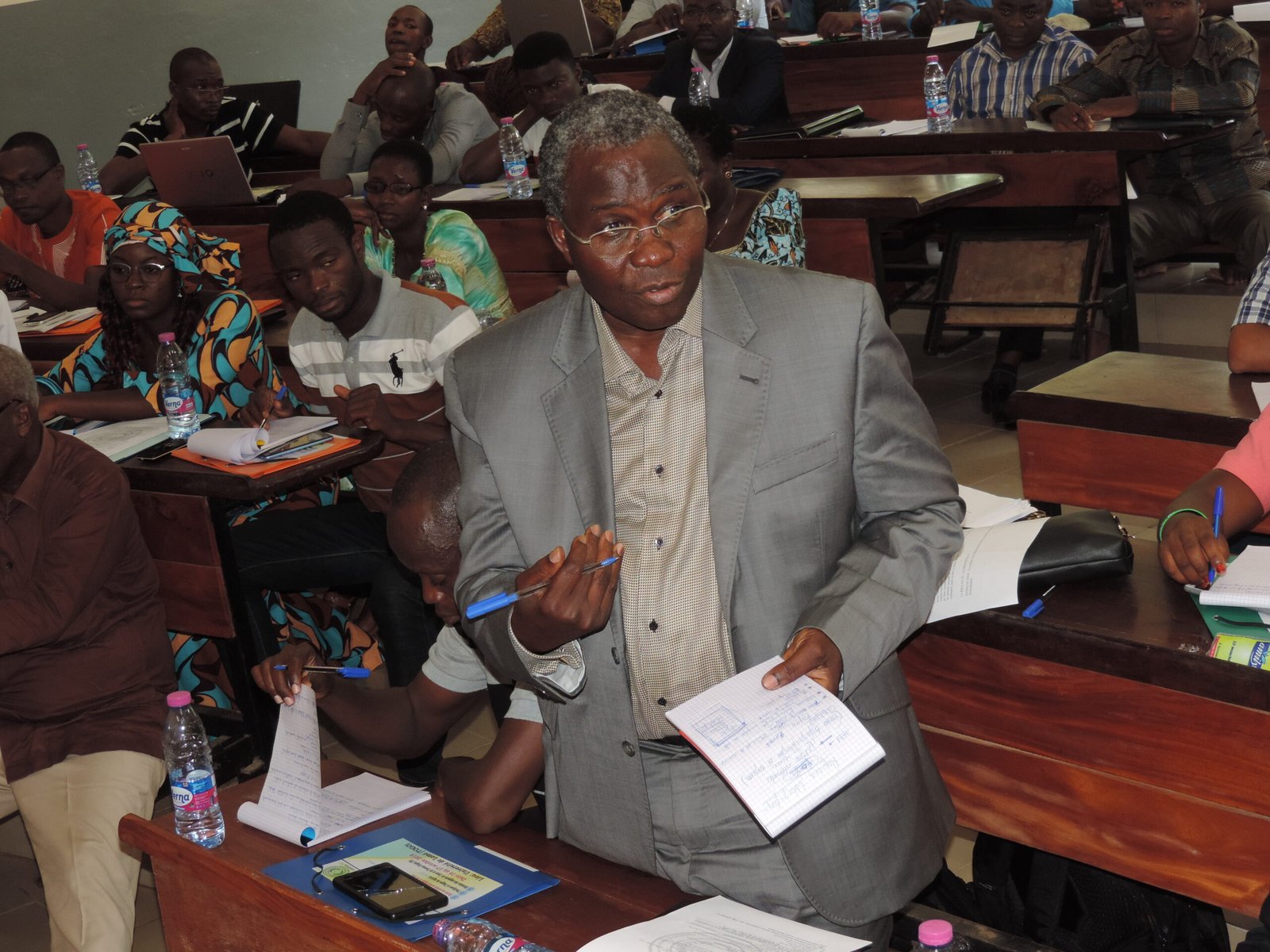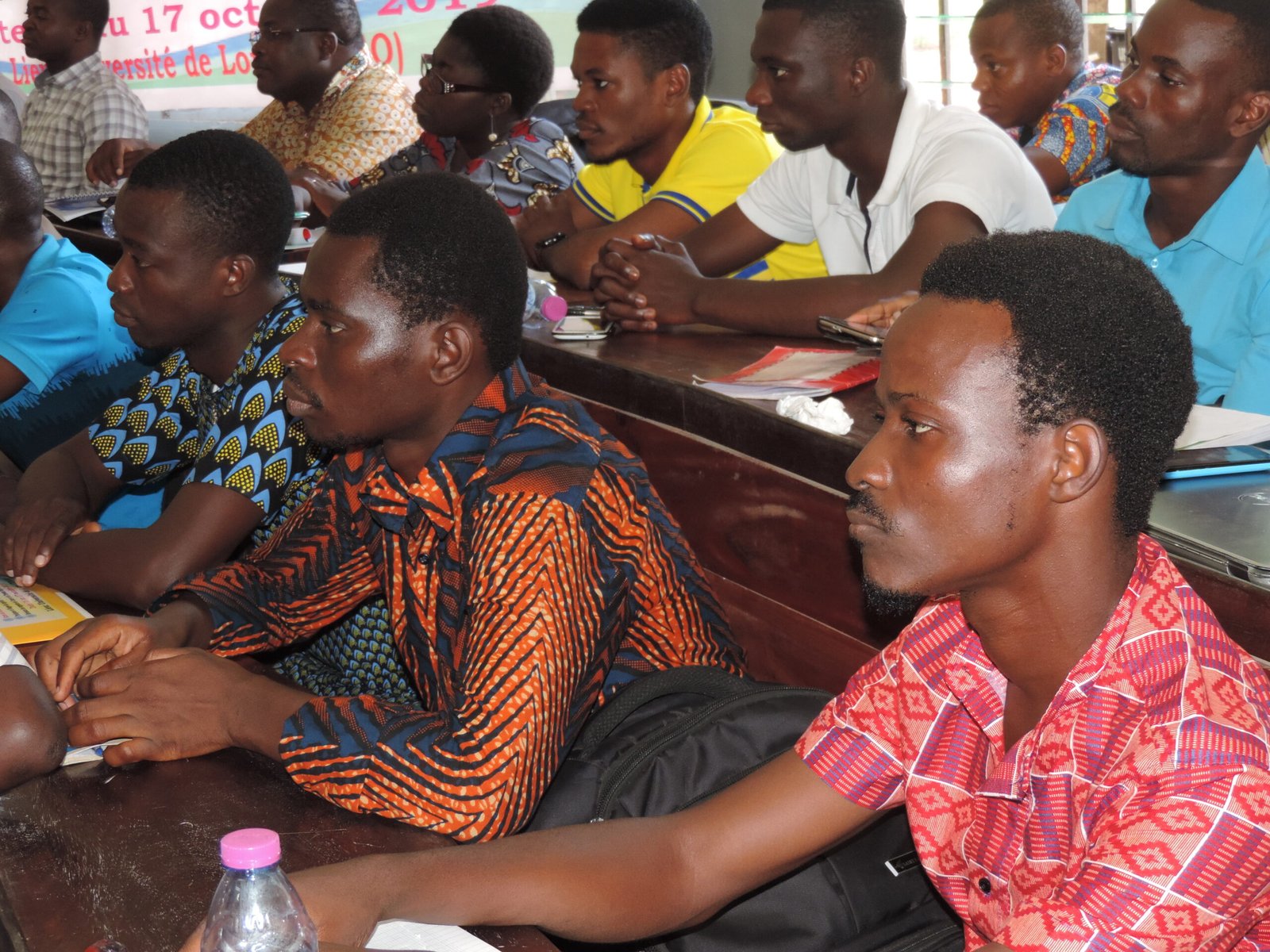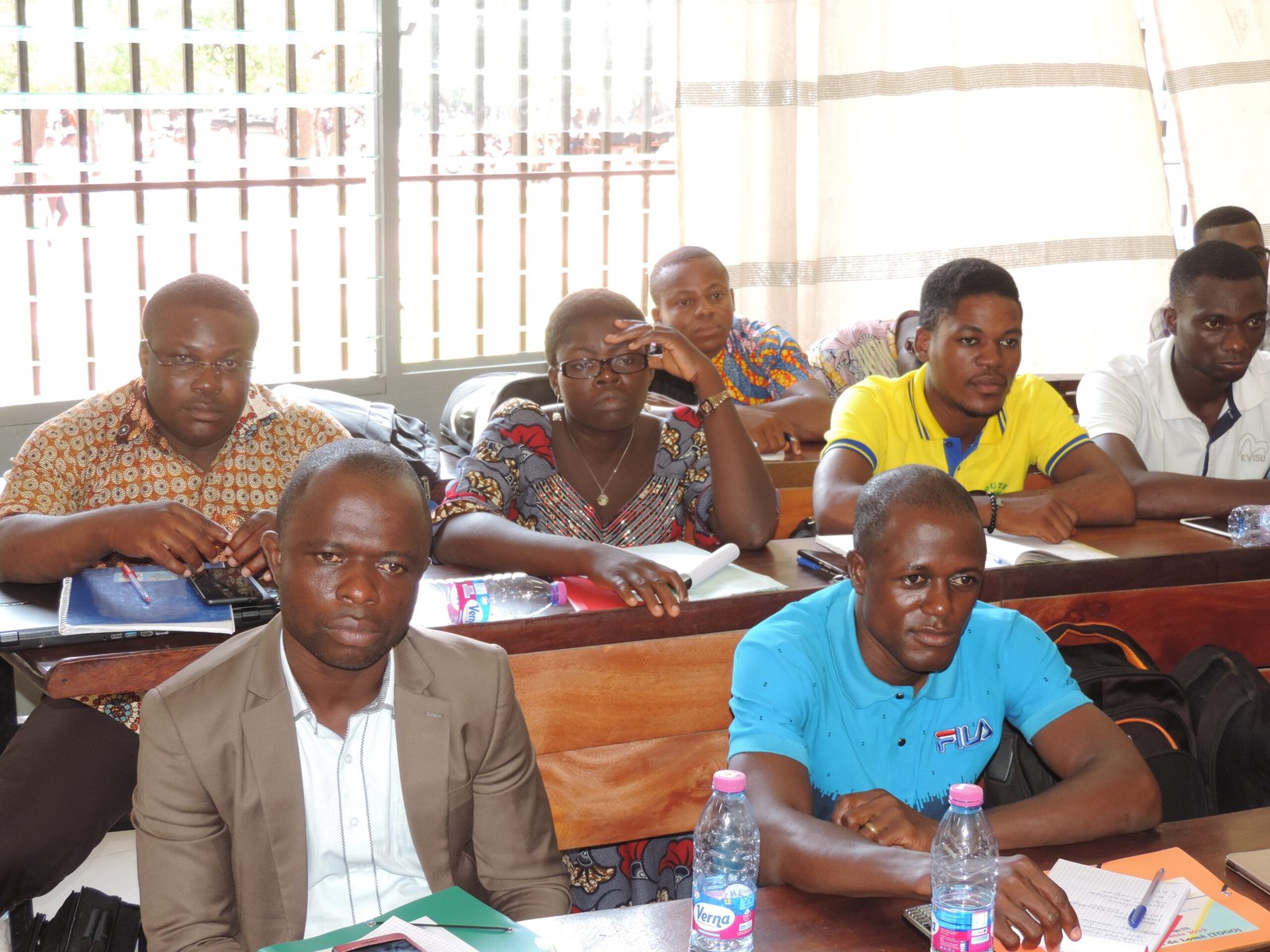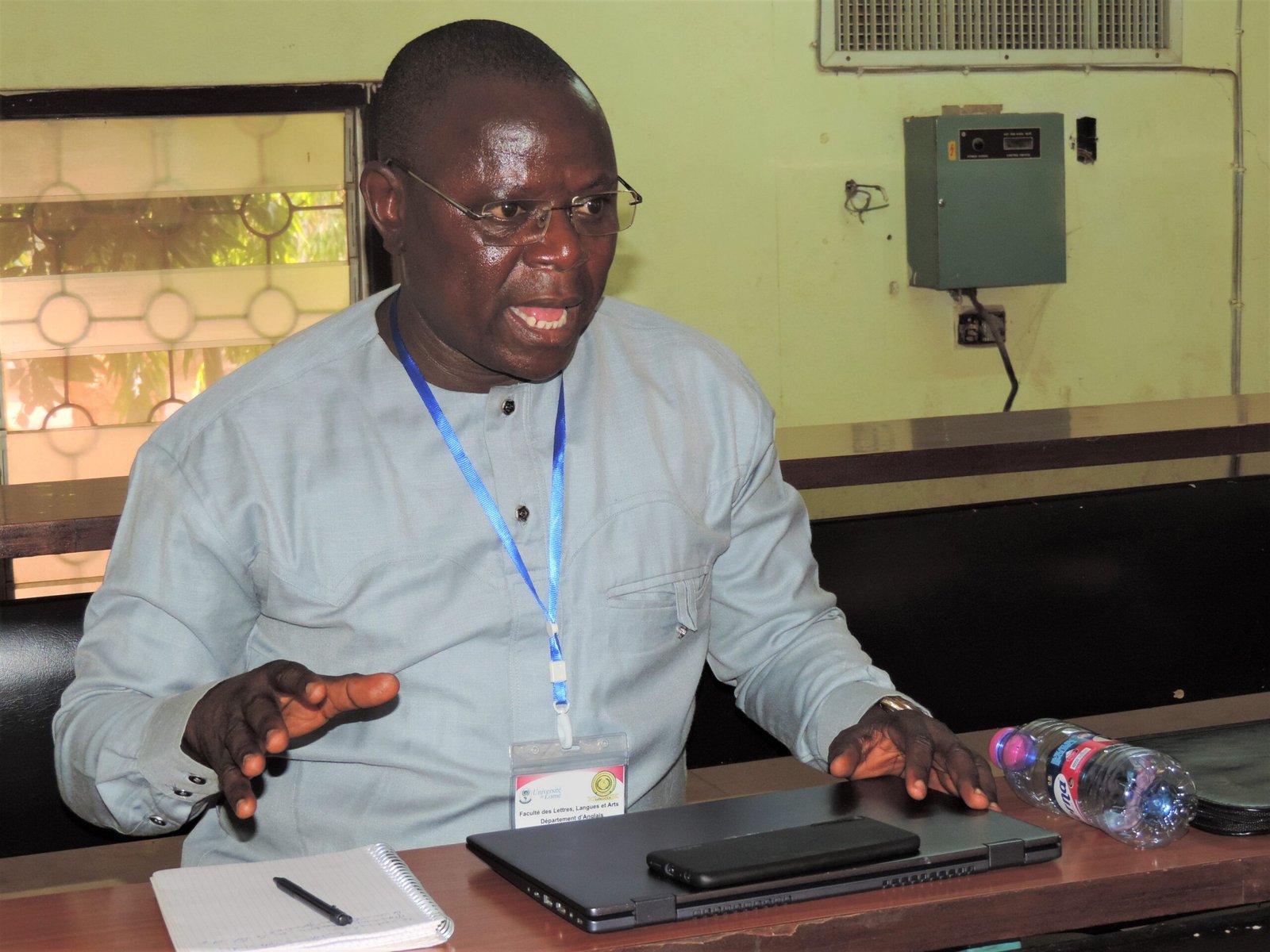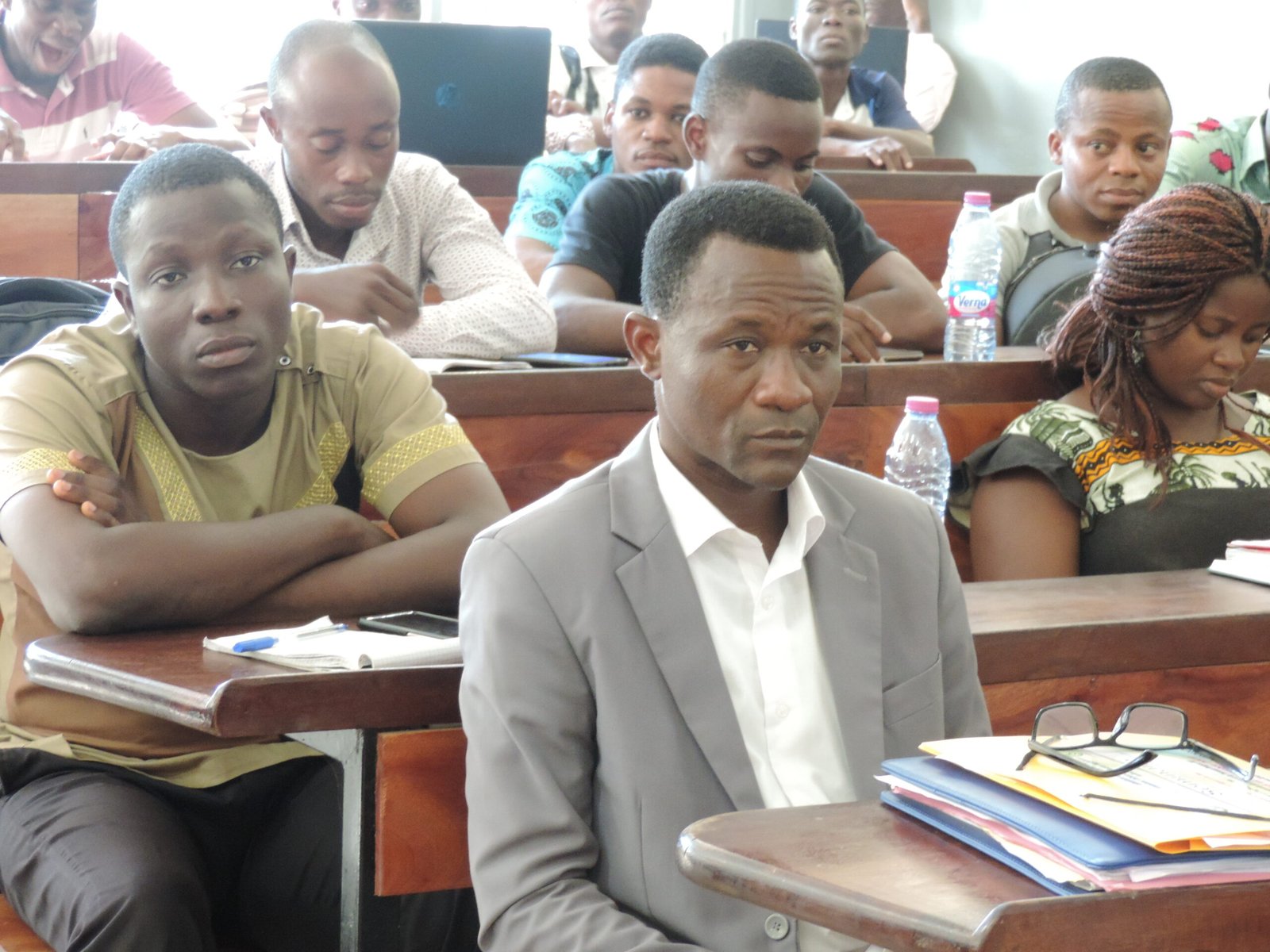ISSUE 1
Article 1 : Monoko-zohi de Diégou Bailly : une écriture du brassage culturel et de la cohésion sociale
François Tchoman ASSEKA
Maître-Assistant de Théâtre
Institut National Supérieur des Arts et de l’Action Culturelle (INSAAC)
Abidjan Côte d’Ivoire
tchomanfrancois@gmail.com
Abstract
The aim of this study is to shed light on the contribution of the mixture of diverse cultural influences and the harmony that reigns within African communities in the ECOWAS zone. In this way, the well-being of all members is ensured, reducing disparities and avoiding marginalisation, a guarantee of sustainable development. The study sustains the hypothesis that Diégou Bailly’s Monoko-Zohi is a play about cultural mixing and social cohesion. This investigation is developed from a semiotic perspective conceptualised by Charles Sanders Peirce. The study concludes that thanks to the prevailing cultural mixing and social cohesion, African communities remain successful, peaceful and resilient.
Key words: cultural mixing, social cohesion, peaceful, resilience.
Article 2 : Le contraste de l’humanitaire dans le théâtre de Tiago Rodrigues
Amadou COULIBALY
Institut National des Arts et de l’Action Culturelle (INSAAC)
Abidjan-Cocody, Côte d’Ivoire
drcoul225@gmail.com
Abstract
Seen as the only way to restore human dignity in times of crisis, humanitarian action is not without its critics. Portuguese playwright and director T. Rodrigues undertakes the difficult and disconcerting task of bringing to light the unbearable and unthinkable that insidiously creep into the activities of humanitarian organizations. His highly topical dramaturgy embraces local issues with universal resonance. It can be read as an invitation to a culture of peace in a world in turmoil, where all kinds of excesses are possible. The aim of this contribution is to highlight the internal dysfunctions that undermine the nobility of humanitarian action worldwide. A sociocritical analysis of his play Dans la mesure de l’impossible shows that humanitarian « heroes » sometimes compromise themselves through actions that contrast sharply with the good intentions that motivate them.
Key words: humanitarian action, crises, culture of peace, excess, T. Rodrigues.
Article 3 : La guerre comme négation du vivre-ensemble chez les primates dans Brazzaville Beach (1990) de William Boyd
Astou Fall DIOP
Département d’Anglais
Université Cheikh Anta Diop de Dakar, Sénégal
&
Aladji Mamadou SANE
Filière Anglais
Université Numérique Cheikh Hamidou Kane, Sénégal
&
El Hadji Cheikh KANDJI
Département d’Anglais
Université Cheikh Anta Diop de Dakar
Abstract
This study explores the problem of war as a deconstruction of peace and a negation of the living together among primates – man and chimpanzee – in the novel Brazzaville Beach (1990) by William Boyd, whose story is partly set in Africa. It shows how, on the basis of their genetic kinship, the story, like a primatology laboratory, deals with the specular relationship between man and his biological cousin, the chimpanzee. Through the prism of scientific and sociological realism, the analysis contrasts the behavioural and psychological similarities between humans and chimpanzees, while at the same time investigates the way in which territoriality, domination, violence and warfare war tend towards an ethological principle, because of the universality of behaviour in these primates. The study proposes a model of certain aspects of aspects of these behaviours.
Key words: Africa, war, primates, research, living-together
Article 4: Post-Brexit Immigration and the British Welfare State Political Discourse in Douglass Board’s Time of Lies
Ténéna Mamadou SILUE
Université Alassane Ouattara, Bouaké (Côte d’Ivoire)
silue_tenena@yahoo.com
Abstract
In post-Brexit Britain, immigration is linked to the ideas of threat, insecurity, socio-economic and political hardships. Many British political elites regard the control of British borders as a means of ensuring the country’s socio-economic welfare. The idea of a prosperous and safe Britain is constantly imagined without the presence of migrant populations. The study builds on Karl Marx and Engel’s (1957) understanding of the concept of ideology that claims that the ruling class uses ideology to create a false consciousness among the working class, this study suggests an analysis of Douglass Board’s Time of Lies. Specifically, the study first argues that post-Brexit hegemonic ruling class deploys a false discourse on immigration to represent migrants as an obstacle to the welfare of Great Britain. Then, the study concludes that Brexit referendum revives the Thatcherite’s ideological fixation as a source of threats and insecurity.
Key words: Brexit, British, Ideology, immigration, security, Thatcherism, welfare state.
Article 5: The Representation of Violence in N’gugi wa Thiong’o’s Weep Not, Child and A Grain of Wheat
Komi Séna KPEDZROKU
Université de Lomé, Togo
kkomisena@gmail.com
Abstract
In his novels Weep Not, Child and A Grain of Wheat, Ngugi wa Thiong’o delves into the complexities of struggle and its repercussions, offering timeless insights into the human quest for peace and security. This study adopts a socio-criticism approach to examine the destructive impacts of violence on warring factions within communities, as depicted by the author. Through an analysis of character experiences, the study illuminates the pervasive atmosphere of fear and despair that accompanies violence, thwarting the realization of dreams and aspirations. Ultimately, it underscores the inadequacy of violence as means of conflict resolution and advocates for peaceful approaches to foster stability and safeguard individual rights. Emphasizing reconciliation as a cornerstone of communal harmony, the study advocates for the cultivation of peace and security as essential components of community development.
Key words: violence, community, consequences, insecurity, peace, reconciliation.
Article 6: Social Justice as a Key Tenet of Security and Sustainable Peace: An Analysis of Martin Luther King Jr.’ S Speeches
Mamadou DIAMOUTÉNÉ
Université des Lettres et des Sciences Humaines de Bamako, Mali
Faculté des Lettres, Langues et des Sciences du Langage
madoukadiam@gmail.com
Abstract
This study examines M. L. King Jr.’s[1] speeches about interracial tensions in “Lincoln Memorial Address” and “I have a dream”. It aims to show that social justice is one of the foundations of security and peace. African Americans are considered second-zone citizens by White people who enjoy a lot of privileges in the American society. Social injustice undermines security, peace and togetherness in the United States of America. The minority Black Americans — living at the margin of the society– and the majority White communities grapple with riots and insecurity. So, in his addresses about intercommunity peace, M. L. King Jr. advocates equality and justice. To explore the distinct speeches, the qualitative method and Homi Bhabha’s postcolonial theory are used to collect, analyze and interpret the textual elements. At last, the results of the study have shown that one of the key foundations of sustainable peace relies upon the restoration of social equity.
Key words: equity, injustice, security, sustainable peace, togetherness.
Article 7: Women’s Self-Definition and Societal Hardships in The Color Purple by Alice Walker
Cyriaque SOSSOU
Groupe de Recherches sur l’Afrique et la Diaspora (GRAD)
Ecole Doctorale Pluridisciplinaire (EDP)
cyrsossou@gmail.com
&
Anne Nathalie Jouvencia Agossi AGUESSY
Faculté des Lettres, Langues, Arts et Communication
aguessynathalie@gmail.com
&
Casimir Comlan SOEDE
Centre Béninois des Langues Etrangères (CEBELAE)
cacoss12000@yahoo.fr/csohede@gmail.com
Abstract
Social discrimination regarding violences, rape and the various forms of marginalization against female gender observed in A. Walker’s The Color Purple and in America in general during the period prompts the commitment to self-defnition and self-determination while talking of collective-face-saving and female’s commitment to claim and reorder the wrongdoings they are subjected to. In that regards, and thanks to Freudian Psychoanilitic approach (1890s) and Alice Walker’s Womanism (1983), the current research work indicates that female groups encounter many sorts of social discriminations. The work also shows that female gender while granting the opportunity is able to contribute to sustainable peace building in families and communities as well. The research work concludes that no social group can be put aside in the living-together human beings have to cope with.
Key words: slef-definition, peace, commitment, violences, living together.
Article 8: A Peaceful and Secured Environment in a Shifting and Multiracial World: A Literary Reflection on Rebecca Walker’s Black, White and Jewish (2001)
Seydou CISSÉ
Université Alassane Ouattara, Côte d’Ivoire
cissseydou97@gmail.com
Abstract
This study focuses on the effective implication of multiraciality in the quest for security and peace in an unsteady atmosphere. This study leans on Rebecca Walker’s autobiography, Black, White and Jewish (2001) to show to what extent an unstable life between two different worlds can be profitable in the quest for security and a peaceful sense of the self – and more broadly of a whole community – despite its vicissitudes. Through the lens of the spsychoanalytical theory applicable to recreated literary communities regardless of race, ethnic group and religious belief, the study has come to the conclusion that African-Americans can rebuild a powerful community. Experiencing tumultuous and unstable situations can help inhabitants promote togetherness and sustainable peace by fostering the future relationships for a better and strong Nation.
Key words: African-Americans, security, multiracial, community, peace, shifting.
Article 9: American Female Leaders in Peacemaking: A Study of Jeannette Rankin, Jeane Kirkpatrick, and Hillary Clinton
Agath KOUNNOU
English Department, University of Abomey Calavi (UAC), Benin
Laboratoire du Groupe de Recherche sur l’Afrique et la Diaspora (GRAD)
kounnouagath@gmail.com
Abstract
This study explores the historical contributions of female diplomats in America, aiming to understand their distinct perspectives on conflict resolution and their impact on gender equality in diplomatic contexts. With J. Rankin, J. Kirkpatrick, and H. Clinton as focal points, the research explores their roles in maintaining peace amidst international tensions. The rationale behind this investigation lies in the need to recognize and analyze the impact of female leaders in diplomatic efforts. The objectives include examining their approaches to diplomacy and their influence on gender dynamics in politics. Employing a comprehensive literature review and qualitative data analysis involving interviews and archival research, this research highlights the contributions of Rankin, Kirkpatrick, and Clinton to conflict resolution and gender equality, revealing strategies like coalition-building. Recommendations include increasing women’s representation, implementing mentorship programs, and ensuring women’s perspectives in policy-making to enhance political participation and equity.
Key words: Feminist leaders, Conflict resolution, Gender equality, Peace, Political participation.
Article 10 : Quels anthroponymes pour la culture de la paix ?
Assolissim HALOUBIYOU
Laboratoire Langues, Littératures et Développement (LaLD)
Université de Kara, Togo
dhaloubiyou@gmail.com
Abstract
Language has power. Words can serve for expressing love or hate, trust or distrust, unity or disunity, reconciliation or radicalization, etc. In short, language has an impact on the quality of interpersonal relations. Basing on linguistic study of some anthroponyms in Kabɩyɛ (a Gur language of Togo), the current work aims at showing that attributing and using some anthroponyms are likely to foster or destruct peace. Carried out in semasiological approach that consists of going from words to their signification, the study has come to the conclusion that anthroponyms conveying positive messages such as peace, tolerance, mutual understanding and forgiveness, goodness, humility, temperance, etc., contribute to fostering peace within communities.
Key words: language, Kabɩyɛ, peace, anthroponym, semantic motivation
Article 11 : Plaisanterie à caractère phonique et lexical entre les parlers nawda
Djahéma GAWA
Université de Kara
gawacelestine1982@yahoo.fr
Abstract
This study aims to identify and to analyze words and expressions that serve as jokes between the different dialects of Nawdm, a Gur language spoken in the North of Togo. Indeed, in order to create a society of humor and facilitate the living together, the speakers of the different dialects of this language do not hesitate to use jokes. Through the approach of Conversation of H. Sacks (1992) which lays emphasis on the relationship between the speaker and the listener and the Generative Grammar which accounts for the possible alternations that could take place, the analysis of the data from field work and documentary sources found that phonetic and lexical alternations that are observed between the different varieties of Nawdm do not hinder cohabitation, collaboration and understanding between speakers of the different dialects of this language.
Key words: Nawdm, Joke, Generative Grammar, Dialect, Alternation.
Article 12: The Semantic Landscape of “Peace”: Exploring Collocational Patterns and Their Prosodic Implications in Corpora
Albert Omolegbé KOUKPOSSI
koukpossialbert@gmail.com
University of Abomey-Calavi, English Department
&
Blandine Opêoluwa AGBAKA
kaddine2@yahoo.fr
University of Abomey-Calavi, INMAAC
&
Innocent Sourou KOUTCHADE
koutchade2@yahoo.fr
University of Abomey-Calavi, English Department
Abstract
The concept of “peace” has historically been significant in everyday language and, most importantly, in specialised discourses such as literature, politics, and social discourses. It is dynamic because of the context, time period, medium, and region of its usage. By exploring its collocates and their semantic prosody, this research aims to unravel the deeper nuances associated with the term “peace” and how its interpretation may change based on its linguistic environment. The study explores corpora such as British National Corpus (BNC), COCA Sampler, and Presidential speeches, using AntConc, Lextutor, and Sketch Engine as concordancers and Corpus Linguistics toolkits to analyse the collocational patterns surrounding the term “peace” and determine the predominant semantic prosody. For each collocate identified, an evaluation is offered according to its semantic prosody either as positive, negative, or neutral. This process has led to the conclusion that the semantic prosody of the word ‘peace’ is predominantly positive across the corpora examined, reflecting its common associations with harmony, cooperation, and well-being. However, notable variations are evident, particularly in political discourse, where “peace” sometimes collocates with terms reflecting tension or conflict, suggesting a more complex or even ironic usage.
Key words: Collocational patterns, Corpus Linguistics, Interpretation, Peace, Semantic prosody.
Article 13: Teaching English for Sustainable Peace: Integrating Language and Security Strategies in ECOWAS Education System
Coffi Martinien ZOUNHIN TOBOULA
English Department, University of Abomey Calavi (UAC), Benin
Laboratoire du Groupe de Recherche sur l’Afrique et la Diaspora (GRAD)
zounhin@gmail.com
Abstract
The ECOWAS zone faces substantial linguistic and security challenges. This study examines the integration of language education, mainly Teaching English as a Foreign Language (TEFL), with security strategies using a mixed-methods research design. Data were collected from 169 participants across Nigeria, Ghana, Benin, Ivory Coast, Burkina Faso, and Togo through surveys and interviews. Quantitative data were analyzed using SPSS and Pearson’s Chi-Square test (Chi-Square = 90.138, p < .001), showing improvements in collective awareness (78%), digital literacy (89%), and crisis reduction (92%). Qualitative data were analyzed through thematic analysis. The study argues that integrated with digital literacy, TEFL can address security challenges more effectively than traditional methods (R. Rubdy & L. Alsagoff, 2013, p.21 and 192). This research contributes valuable insights into the role of language education in enhancing peace and stability across the ECOWAS region.
Keywords: Sustainable peace, language education, security policies, ECOWAS Zone, digital literacy.
Article 14 : Dispositifs de lutte contre la cybercriminalité dans l’espace ouest africain : réflexions pour une lutte beaucoup plus efficace
Donatien SOKOU
Département de sociologie et d’anthropologie
Centre Universitaire d’Adjarra (Université d’Abomey Calavi)
sokoupremier@yahoo.fr
Abstract
Faced with the unbridled digitization of life, West African countries have put in place strategies to contain any digital deviance, particularly those linked to cybercrime. But these measures are increasingly being put to the test, to the point of provoking debate. The aim of the present research is to analyze these controlling mechanisms on order to make amendments. To achieve this, a mixed-methods approach was adopted, involving surveys of one hundred and thirty-nine (139) participants with diverse profiles. At the end of the research, it was concluded that the dynamic nature of digital offences, combined with relative anomy, the lack of specific training and collaboration among the various stakeholders in the countries concerned, and the problem of reintegrating cyber-offenders, undermine the effectiveness of the measures in place to combat them.
Key words: fight mechanisms; cybercrime; reflections; effective fight; Benin.
Article 15 : Les fêtes N’do-biti chez les Akaselem, Assaku et Itchombi chez les Biyobè : des stratégies de la cohésion sociale dans les régions centrale et de la Kara du Togo
Houéfa Ablavi HOUEDANOU-AKOTCHOLO
Anthropologie sociale et culturelle
cecile.floresama@gmail.com
&
Nourou TCHALLA
Anthropologie sociale et culturelle
tchalla.net@outlook.com
&
Atiyihwè AWESSO
Anthropologie Sociale et d’Ethnologie
charlesawesso@gmail.com
Abstract
In Togo, like elsewhere, social cohesion is a challenge to communities. To take up this challenge, mechanisms of endogenous social cohesion are being implemented. What is their configuration and how are they implemented? Our objectives are to analyze the configuration of N’do-biti feasts among the Akaselem and Assaku and Itchombi among the Biyobè as a form of mechanism for social cohesion among the Akaselem in Togo, and the extent to which this model can be implemented within the ECOWAS zone. A qualitative ethnographic approach has led to the conclusion that these celebrations involve not only traditional and administrative authorities as well as the diaspora for the promotion of sustainable peace.
Key words: Social cohesion, conflicts, development, diaspora, shocks.
Article 16 : Le Conseil de Sécurité de l’ONU face aux défis sécuritaires de l’Afrique
Assataclouli BAKOUSSAM
Science politique
Université de Lomé
rbakouss@gmail.com
Abstract
The main mission of the UN is, according to Article 1 of its Charter, the maintenance of international peace and security. Understood in the primary sense, it is a question of preserving the world from the phenomenon of war through efforts to prevent and manage conflicts between States if necessary. Such an understanding of international security seems reductive of the notion and even seems outdated. The present study aims, in this perspective, to analyze international security issues whether at the level of States or societies, with regard to intercommunity conflicts, terrorism, infectious diseases, pandemics, epidemics among others in order to think of ways to resolve these conflicts. According to our research, we can conclude that the security challenges, the most poignant in Africa, struggle to be included on the Security Council’s agenda even though they can have global repercussions.
Key words: UNO, Peace, Security, ASS, resolution.
